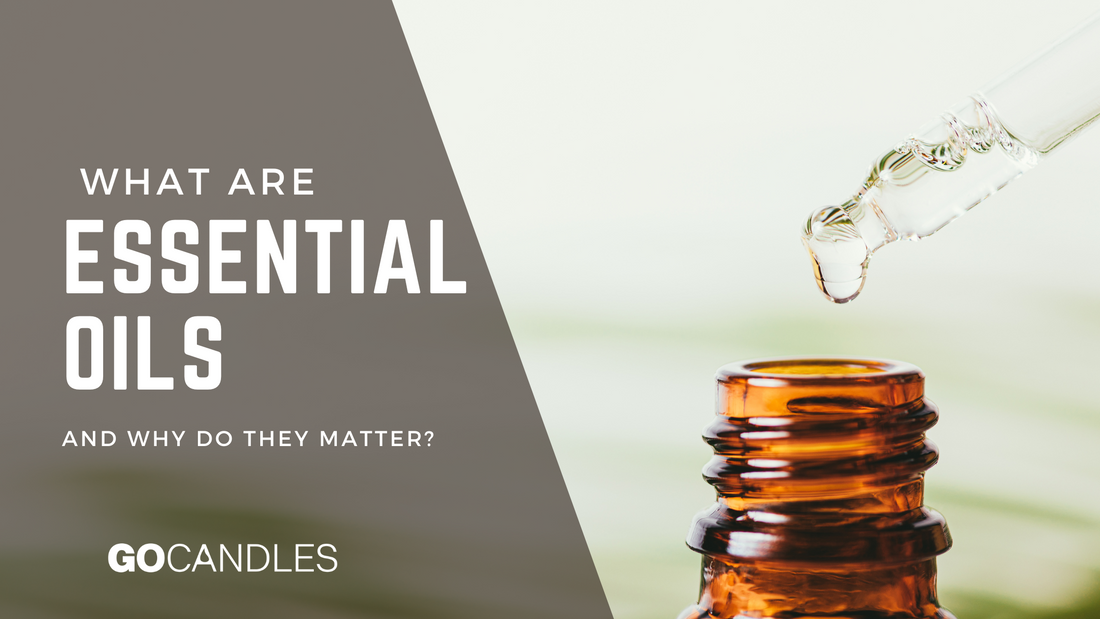
What Are Essential Oils - and Why Do They Matter?
Share
Essential oils are not an invention of the present day. For thousands of years, people all over the world have used them as herbal products, home remedies, or for their pleasurable scent. So what exactly are essential oils?
Essential oils are “essences” or drops extracted from different plant parts such as flowers, fruit, leaves, stems, and roots by steam distillation or cold press. They are highly concentrated oil that improves physical and psychological well-being. Because of this, essential oils have been used for many therapeutic applications since the dawn of time. Egyptians were among the first to extensively use fragrant essential oils in medical practice, beauty treatments, dietary preparation, and religious ceremonies.
What makes Essential Oils effective?
There are more than 400 types of essential oils. Each essential oil has a unique smell and health benefits. Essential oils are highly individualized, meaning that they can affect everyone differently. Nevertheless, their benefits are countless. The most significant thing about Essential Oil is a natural product without side effects, like many modern medicines or chemical fragrances. They eliminate the disease from its root, not only improve the symptoms.
How do Essential Oils work?
Their mechanism of action involves the incorporation of essential oils into a biological system and gives a signal to the receptor cells in the nose when inhaled. The essence of essential oils can stimulate the olfactory system, including all organs or cells connected to smell, including the nose and the brain. When we inhale through the nose, these essential oil molecules affect the olfactory organs then affect the brain. The signals are transmitted through the olfactory bulb to the limbic and hypothalamus parts of the brain; from these signals, the brain releases neurotransmitters like serotonin, endorphin, etc. These neurotransmitters link our nervous and other body systems to produce desired change and feelings of relief, relaxation, energy, concentration, and more.
Difference between essential oils and fragrance oils:
- Essential oils are organic fragrances that are 100% natural.
- Essential oils can be used for both medical and aromatherapy purposes.
- Essential oils have fewer carcinogens and chemicals than fragrance oils.
- Essential oils often have a more distinctive characteristic.
Benefits of Essential oils:
Some common benefits of essential oils include:
- The aroma of some essential oil has been used in the treatment of anxiety and depression along with other traditional medicine.
- Inhaling certain oils such as peppermint, chamomile, and lavender oil can reduce headache, migraine and increase focus.
- Essential oils can act as a home cleaner by both physical or airborne applications as antibacterial. Aromatherapy candles are a great way to achieve this.
- Can help improve sleep patterns and increase relaxation.
Example of some essential oils:
- Bergamot: Used in the treatment of depression and anxiety and can help feel more energetic and balanced
- Lavender: Causing a relaxing effect on the overall mind and body. Reduce stress.
- Lime: It boosts alertness and improves overall concentration, headache, digestion. It is also used as a household disinfectant.
- Frankincense: Natural scent to help improve focus and clear brain fog, may also help to eliminate bacteria and viruses
Conclusion:
Essential oils are becoming more and more popular today, as people are rediscovering their aromatherapeutic health benefits and their pleasurable scents. They are a valuable addition to everyone – not only patients or those with specific health conditions – to improve the quality and enjoyment of daily life.
Guest Post written by Heidi, Certified Aromatherapist and Go Candle Designer.
